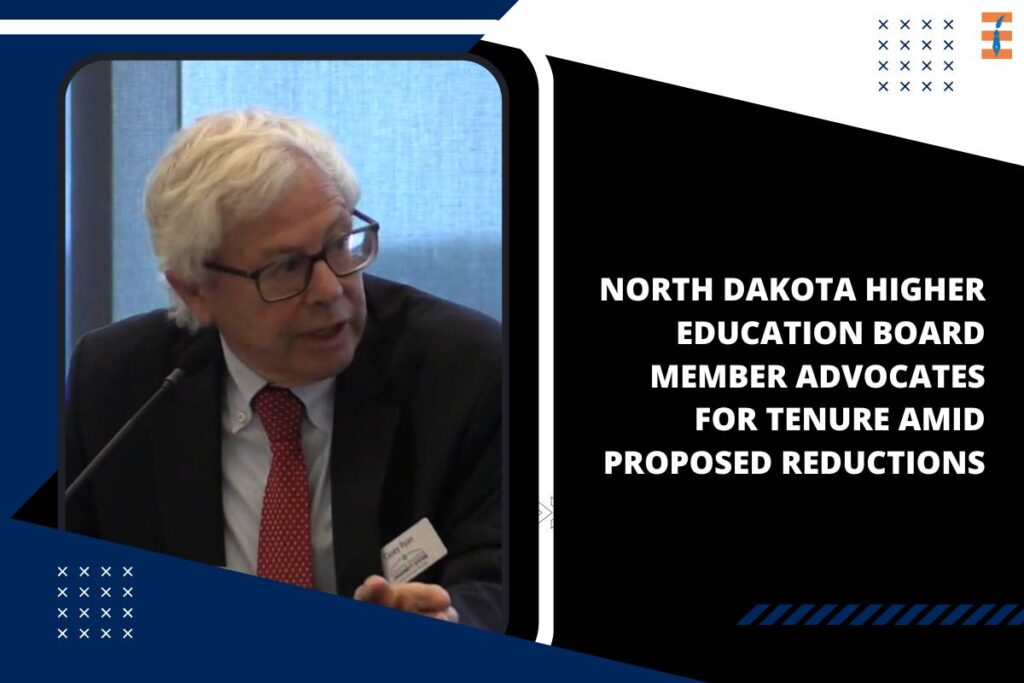Source-Grand Forks Herald
In the ongoing debate over the future of tenure in the North Dakota higher education system, Casey Ryan, a member of the North Dakota State Board of Higher Education, has voiced staunch support for tenure, despite a draft report proposing significant reductions in tenured faculty positions across the state’s colleges and universities. Ryan, who chairs the ad-hoc post-tenure review committee, emphasized the importance of tenure as a rigorous process that should be honored and maintained.
The draft report suggests an “ongoing review” of faculty positions at two-year colleges to reduce the proportion of faculty holding tenure to 50% by 2030. Additionally, it proposes subjecting tenured and tenure-track faculty at four-year colleges to heightened scrutiny, including granting more authority to college presidents in the tenure process. This proposal has sparked concerns among educators and officials alike.
Concerns and Opposition
The proposed reductions have drawn criticism, particularly from officials at North Dakota’s two-year colleges. The draft report, highlighted in an Inside Higher Ed story, outlines double-digit decreases in tenure and tenure-track faculty positions, prompting opposition from these institutions. Ryan, however, emphasized the critical role of tenure, especially in disciplines like STEM and English, where continuity and expertise are paramount.
The post-tenure review committee, established in response to a legislative bill, aims to address concerns regarding tenure while preserving its integrity. Despite some colleges implementing new post-tenure review policies, there remain lingering concerns among faculty members regarding the proposed reductions, particularly the recommendation to reduce tenure positions to 50%.
Affordability and Leadership Changes
As discussions surrounding tenure continue, attention has also been drawn to the affordability of the North Dakota higher education system. Brenda Zastoupil, Director of Financial Aid, highlighted that despite the debate over tenure, attendance costs at North Dakota’s public colleges and universities remain comparatively lower than peer institutions. However, disparities in costs between two-year colleges and their regional counterparts have raised questions about funding mechanisms and affordability.
In other developments, Tim Mihalik has been re-elected as the chair of the state board, while Danita Bye will assume the vice-chair position, succeeding outgoing member John Warford. These leadership changes come amidst ongoing discussions about the future direction of higher education in North Dakota, including the tenure debate.
As the state grapples with balancing academic standards, affordability, and administrative oversight, the fate of tenure in the North Dakota higher education system remains a focal point for stakeholders across the state. The final report from the post-tenure review committee, expected in June, will likely shape the future landscape of academic employment in the state.
Also Read: The Rise of EdTech Startups: Revolutionizing Education Through Innovation

